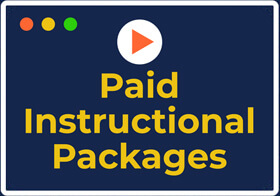Divorce is a big decision
You can get through it with your dignity and your pocketbook in tact.
Read on for real answers (we never hide the ball) on how to develop an exit strategy that gets you off to a legally advantageous start and strategically plan your divorce.

We offer a variety of free divorce resources. Click a topic to learn more.
Need more help? This section also has a paid instructional package available.
FAQ’s Related to Contested Case
It’s a case where Husband and Wife are not able to come to an agreement on one or more issues. The court then has a trial at which a judge listens to testimony, reviews exhibits, and decides the disputed issue or issues. In some contested cases, every issue is disputed. In other contested cases, perhaps only one or two issues are disputed and the rest of the issues are disposed of by way of a stipulation or written agreement.
Yes. If you start the divorce by filing with the court an ex-parte motion to kick your spouse out of the family home and also seek a supervised visitation child custody order, then the case is probably going to be a contested case. If you start the case in a ack mode, you should expect your spouse or his or her lawyer to respond in kind.
No. It may take a year or longer to get to trial and there will be any number of court appearances along the way, including a settlement conference at the courthouse. At any point before you get to trial, you may be able to reach a settlement agreement with your spouse. Very few cases actually go to trial.
It depends on a lot of factors. It depends on how many cases the judge assigned to your case is handling . Many counties courts have too many cases and too few judges. Other courts are not so busy. It also depends on how complex your case is. If your case involves a lot of complex issues, it can take a long time before both parties are ready to go to trial. It also depends on how hard one or both parties push the case through the court system. It can easily take a year to get to trial. Sometimes it takes two or more years.
You apply for temporary orders at the start of the divorce case.
You can obtain temporary orders for child custody, child support, spousal support, attorney fees, and lots of other kinds of temporary orders by filling out and filing a “Request For Order”, which is FL-300, with the court. A fairly brief hearing will be held by the court. At that hearing, the judge will make appropriate temporary orders to maintain the status quo until the time of trial.
You use “discovery”.
“Discovery” refers to gathering information and documents from your spouse or from third par=es so you can prepare for trial or prepare to negotiate a settlement. There is “informal discovery” and “formal discovery”.
Informal discovery is where both parties cooperate with one another by voluntarily providing whatever information or documents the other party requests. Formal discovery is when your spouse will not voluntarily produce the information or documents you want, so you have to send them or a third party a legal document to force them to provide the information and documents.
Interrogatories; Requests For Admissions; Request For Production of Documents; Depositions; and Subpoenas.
Interrogatories are written questions your spouse must answer under oath. There are two types of interrogatories: 1) Form Interrogatories; and 2) Special Interrogatories.
The Judicial Council puts out a set of Form Interrogatories for family law cases. The form is FL-145. You can find the FL-145 form interrogatories in our Court Forms Database. The FL-145 consists of 21 questions that you can compel your spouse to answer.
Special Interrogatories are questions you draft yourself and then submit to your spouse to answer under oath. You may want your spouse to answer particular questions that do not appear on the Form Interrogatories.
“Request For Admissions” can be used to compel your spouse to admit the genuineness of a specific document that you want to use at trial or to admit the truth of specific facts. If your spouse admits that certain facts are true in response to a Request For Admissions, you don’t have to prove those facts at trial. If your spouse admits in a response to a Request For Admissions that a particular document is genuine, then you do not need to prove the authenticity of that document at trial.
You can compel your spouse to produce documents that are in his or her possession or under his or her control by sending your spouse a “Request for Production of Documents”. For example, you may want your spouse to produce copies of their pay stubs, retirement plan documents, credit card statements, loan applications, check register book, bank statements, etc.
A deposition is when you have your spouse or a third party sit in front of you and answer whatever questions you want to ask. The “deponent” is under oath. You hire a stenographer that a ends the deposition. The stenographer places the deponent under oath and then types up every word that is said during the deposition. You can also compel your spouse or a third party deponent to bring documents that are in their possession or under their control with them to the deposition so you can ask questions about the documents. A few weeks after the deposition, the stenographer gives you a transcript of the deposition. You pay the stenographer for appearing at the deposition and you pay the stenographer for the original transcript and a copy of the transcript. The cost of the transcript is going to depend on how many pages make up the transcript. You are billed per page.
If you Google “court reporting services” you will be able to find deposition stenographers in your area. Most court reporting companies will provide not only a stenographer, but also a conference room where you can take the deposition if you use their stenographer.
You use a “Deposition Subpoena For Production Of Business Records”. This type of subpoena is used to compel a third party to produce copies of documents or other materials. For example, you may want your spouse’s employer to produce copies of payroll records and/or records pertaining to your spouse’s retirement benefits. You may want to subpoena bank records from each bank where your spouse has or had an account.
You can use the templates in our Templates Database. All of our formal discovery templates are available for one $20 charge. In the alternative, you can go to the law library in your county and use the discovery form books.
Before you get to trial, you will a end a settlement conference at the court. During the settlement conference, the judge or court staff, will offer their assistance in trying to help you and your spouse reach a settlement on all issues. Most contested cases settle at the settlement conference.
Yes. If you start the divorce by filing with the court an ex-parte motion to kick your spouse out of the family home and also seek a supervised visitation child custody order, then the case is probably going to be a contested case. If you start the case in a ack mode, you should expect your spouse or his or her lawyer to respond in kind.
If you are unable to reach a settlement at the settlement conference, the court will likely give you a trial date. It is also possible the court will schedule a second settlement conference.
The trial will be in front of a judge, not in front of a jury. When you put on evidence during a trial, there are very complicated rules of evidence. You can take comfort in the fact that a large percentage of lawyers don’t understand even the basic rules of evidence. In addition, when the two parties to a divorce are both in pro per, there is a tendency for the court to overlook most of the rules of evidence because neither party understands how to make a proper objection.
Since you do not have a lawyer, your testimony will not be given by means of a question and answer format with you on the witness stand, which is what takes place during trials as seen on television. Instead, the court clerk will have you take an oath to tell the truth. Then, you will simply tell the judge what you want the judge to know. Many people that are in pro per will just type up a script or at least an outline of what facts they want the judge to known before the judge decides the case.
After you have testified, meaning recited your prepared testimony statement to the judge, you will have an opportunity to call any witnesses you want to present, including your spouse. If you have any witnesses, they will go to the witness stand and take an oath. You will then ask them questions. Your questions and their answers will be evidence the judge will consider.
After you have presented your case, your spouse will have an opportunity to present his or her case, including calling any witnesses, and questioning you. After both sides have presented their cases to the judge, the judge may or may not give both of you an opportunity to make a closing argument. After that, the case is submitted for the judge to decide.


